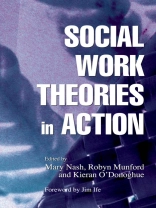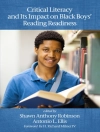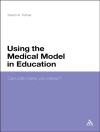This wide-ranging collection of essays offers valuable insights into the cultural issues involved in the practical application of social work theories. Leading contributors explore the challenges faced by indigenous populations and ethnic minority groups, examining how they can gain control over their position as minority populations, and offering valuable guidance on cross-cultural work.
The direct implementation of four established theoretical approaches – ecological systems, community development, strengths-based approaches and attachment theories – is shown in a variety of contexts, including mental health care, trauma counselling and child protection. Using community development work in Australia and New Zealand as a case study, the contributors also advocate using these approaches in work with migrants and refugees.
Social Work Theories in Action recognizes the importance of drawing on the strengths of families, individuals and communities and offers theoretical perspectives that can be applied in everyday work situations. It is essential reading for social and community workers, mental health professionals and social work students.
Spis treści
Foreword. Professor Jim Ife. Introduction: Integrating Theory and Practice. Part 1: People in their environments. 1. The Ecological Systems Metaphor in Australasia. Kieran O’Donoghue and Jane Maidment, Central Queensland University, Australia. 2. An Ecological Understanding of HIV Practice in South Africa. Christa Fouché, Massey University, New Zealand. 3. Complexity and Context: An Ecological Understanding of Trauma Practice. Carole Adamson, Massey University, New Zealand. 4. Integrated Practice in Mental Health Social Work. Mathew Keen, Psychiatric Social Worker, Palmerston North, New Zealand and Kieran O’Donoghue. Part 2: Developing Communities. 5. Community Development: Principles into Practice. Robyn Munford and Wheturangi Walsh Tapiata, Massey University, New Zealand. 6. Dreams are Free: Nga Moemoea a te Hapu Rachael Selby, Massey University, New Zealand. 7. Community Development: A Tongan Perspective. Tracie Mafile’o, Massey University, New Zealand. 8. Responding to Settlement Needs: Migrants and Refugees and Community Development. Mary Nash. Part 3: Working with Strengths. 9. Working with Families: Strengths-Based Approaches. Robyn Munford and Jackie Sanders, Massey University, New Zealand. 10. Strengths-based Practice in Statutory Care and Protection Work. Rodger Jack, Child, Youth and Family Services, Aotearoa New Zealand. 11. Bi-cultural Strengths-Based Supervision. Chris Thomas, Massey University and Sharlene Davis, Cultural Supervision Practitioner, New Zealand. Part 4: Attachment: Reworking Relationships. 12. Attachment Theory and Social Work. Sue Watson, Massey University, New Zealand. 13. Working with Adults who are Parenting. Nicola Attwool, University of Otago, New Zealand. 14. Attachment Issues and Work with Adolescents. Nikki Evans University of Canterbury, New Zealand, and Marie Connolly, Te Awatea Violence Research Centre, New Zealand. Conclusion: Integrated Theory in Action. Glossary of Maori and Pacific Words. Contributors. Index.
O autorze
Mary Nash is the former chief editor of Social Work Review and is currently senior lecturer in social work at Massey University, New Zealand. She has published on social work fields of practice, social work history, and feminism and spirituality.












